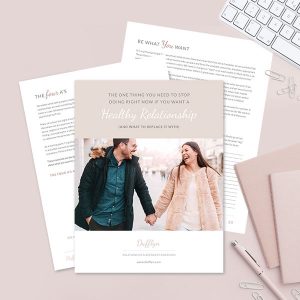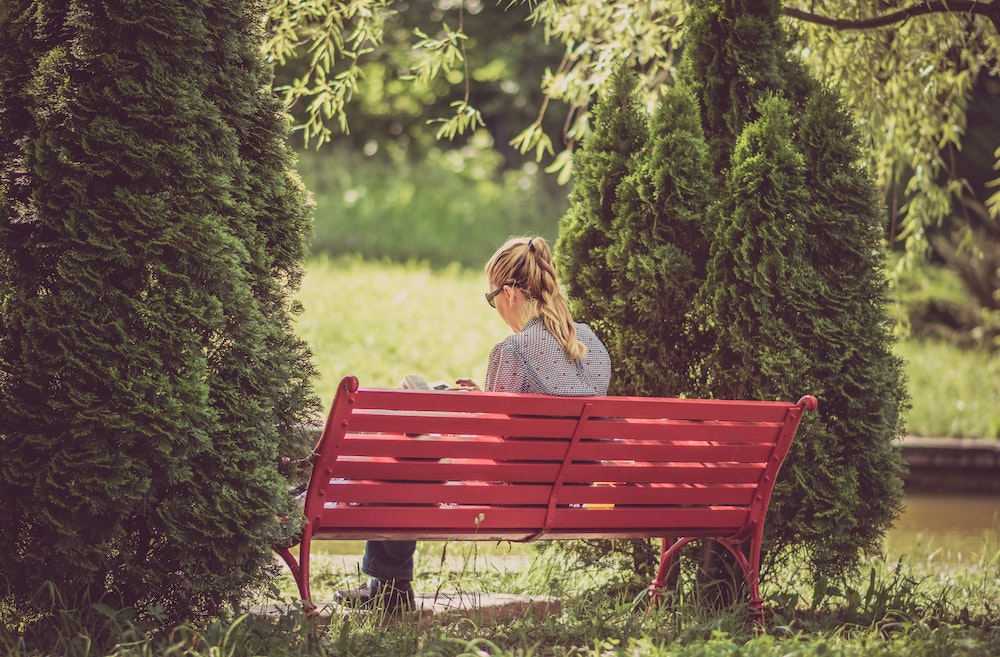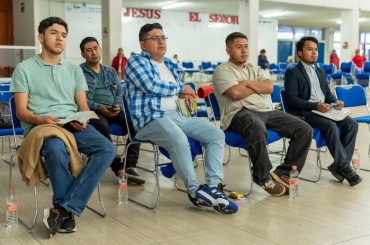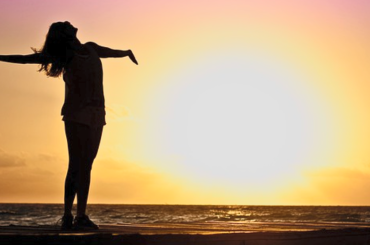I’m sober, but still single.
What am I missing here?
When we leave behind the coping mechanism that allowed us to deal with feelings—be it drugs, alcohol, food, gambling, work, or whatever—we often still struggle with the underlying issues we were attempting to manage in the first place. For many (who are we kidding—most) of us this includes romantic relationships.
It could be that the addiction allowed us to stay in an unhealthy relationship. Now that we have clarity, we can no longer tolerate the discomfort.
It could be that the addiction helped us to cope with insecurities, gave us a false sense of confidence, and numbed the pain of heartbreak.
It could be that we have been just fine with the way things were going, up until now, but superficial hookups just aren’t cutting it anymore.
Maybe we are finally ready and feel capable of having a family.
Now that we are not depending on a maladaptive coping mechanism, we’ve got to develop some new skills if we are going to build healthy relationships in recovery.
We all deserve love and companionship. Isn’t it worth doing the work to create an environment where that can blossom?
What is this all about?
First, we need to recognize where we have fears of abandonment and intimacy. This is the two-sided coin. Most of us who are insecure in relationships have both, but one fear is more primary than the other.
These fears can manifest in a number of ways. And they are exactly what keeps us from forming true partnerships with others. We may not even know we have these fears. But we do know if things just aren’t quite working out the way we’d like.
As we gain ground in recovery, we begin to notice if we assign a disproportionate amount of time, attention and value (above ourselves) to the object of our affection.
We notice if we have unrealistic expectations of others when it comes to the affection we want from them.
We may see how we fear getting lost in a relationship.
We notice if we begin to neglect to care for ourselves while we’re in a relationship.
We might see that we seek intensity (maybe even outside our committed relationship) just to feel alive.
We make someone into our higher power, and put them on a pedestal. And then we blame them when they disappoint us.
We may be using walls instead of boundaries (such as a wall of distance, anger, or silence) in order to control others and avoid feeling engulfed.
Oh boy, have I been there.
I was single for twelve years in recovery. It was excruciating.
And sure, there was some embarrassing behavior. (That time I got caught driving by my ex’s house; that time I realized waaaaay too late that “he” had a girlfriend; that time I nearly gave some dude a hand job in a theatre just because he wanted me to). But the worst part was actually the small lies I told myself. The things that nobody else even knew about.
- When I would choose an action movie over a vampire romance, because it was what I thought “he” would want to see.
- When I would pretend I wasn’t offended by “his” slightly sexist/racist/homophobic/crude joke.
- When I would walk a mile in heels just to look cute for “him.”
Whoever “he” was. It didn’t matter. He was whom I was currently obsessed with: getting him to notice me, fall for me, take care of me.
I couldn’t see that I was actually abandoning myself every time I did this. And I couldn’t see how to stop. I was chasing a fantasy I had created a long time ago. And it had gotten me through some difficult times as a kid. But now, it was just creating chaos, pain, and loneliness.
When I finally began to make choices that put myself first, everything changed.
How to Heal
They key to getting the relationship, and the love, that you want actually is giving it to yourself.
I know everybody says to love yourself first. But how many actually know how to DO this?
Building self esteem is not just about esteemable acts. It is about acts of self-love. We don’t want to depend on the esteem of others, we want to show ourselves that we do truly care about ourselves.
And love is an action. We have to act like we love ourselves. So what does that mean?
We all know that one person who seems so confident with the opposite sex. Maybe they aren’t the most attractive, but they always seem to have a posse of suitors. It’s the irresistible magnetism of someone who values themselves—who knows how to put themselves first.
So ask yourself, what would that person do, in any given romance quandary? And start doing that.
Choose at least one act of self-love a day. And start doing that.
Spend time with others who model self-love for you. And start doing what they do.
This is a way to work from the outside in. And if you’re ready, and you are sick and tired of being alone, you can also work from the inside out.

You didn’t come this far to be the only one at the prom without a date. You deserve love. And there’s no reason you should have to wait any longer.
Find Dufflyns Website HERE







